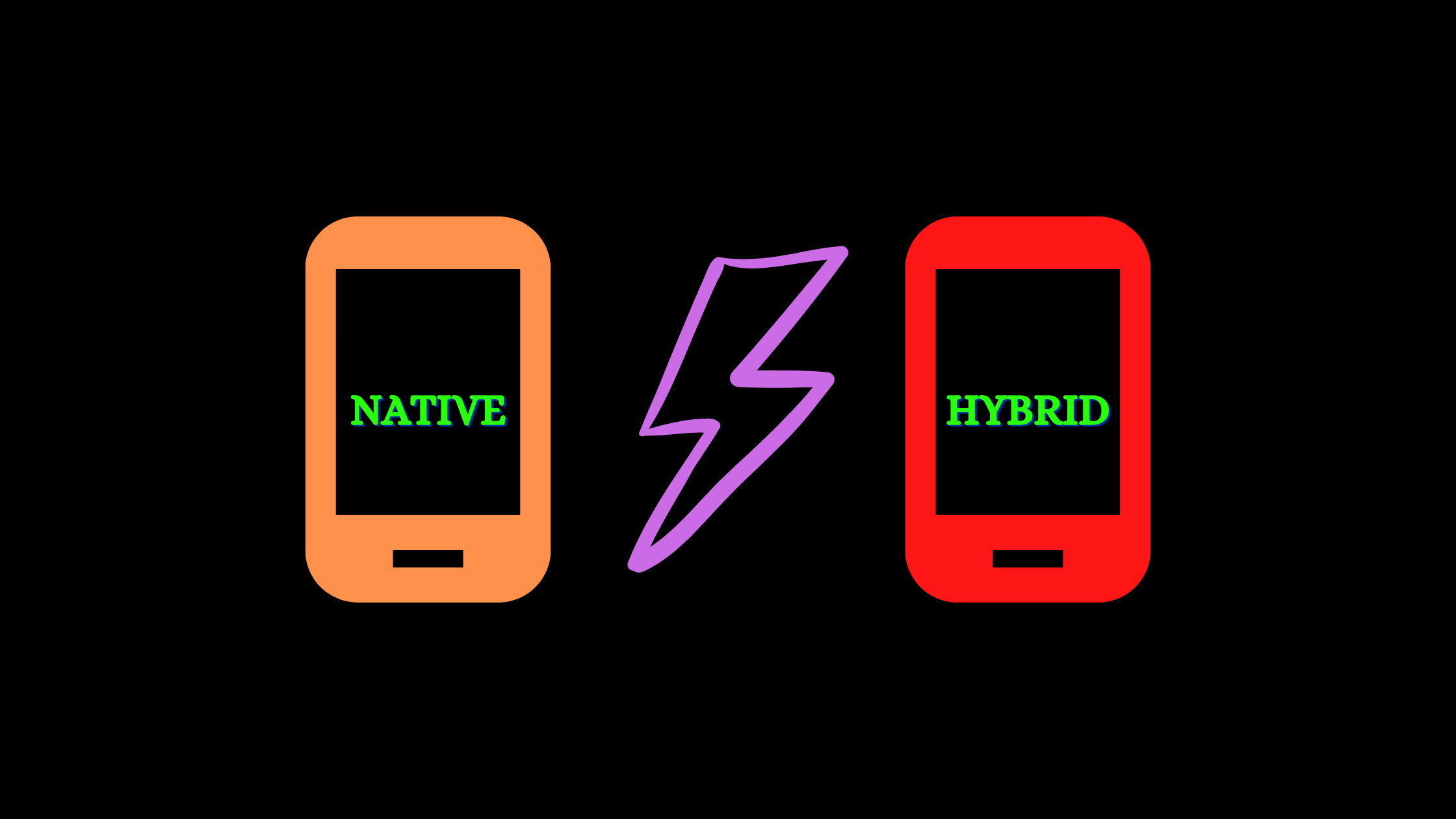Which form of mobile app development is better ? is it hybrid or native ? Lets look side by side comparison of native vs hybrid mobile application development.
Native Application
Native applications is a software application built in a specific programming language, for the specific device platform, either iOS or Android. As it was designed to work on a specific mobile device and operating system, it has the ability to use hardware and software specific to that device.
A native app is specially made and coded for a specific mobile platform in its native programming language –
- iOS (Objective-C or Swift)
- Android (Java, Kotlin)
- Windows Phone (C#)
A native application is written in a language exclusive to the platform for which it is being developed.
For example,Apple and Google offer app developers their own development tools, interface elements, and a standardised SDK; Xcode and Android Studio, respectively.
Pros of Native:
- Easy to access any function of the device, such as the camera, GPS, calendar, microphone, motion sensor, and fingerprint sensor.
- The native app is built for a specific Operating system (OS) and written in programing language specific to the platform like Objective-C or Swift for iOS and Java for Android. Hence, Native apps give a flawless performance with fast operating speed and work smoothly in compare with hybrid apps
- The most reliable, fastest, and most responsive user experience for users.
- As they are designed for a specific operating system, they provide outstanding performance.
- Better UX/UI experience
Cons of Native:
- Native App Development is time-consuming and expensive, and we need to develop apps for both Android and IOS separately since their code bases are different
- Native App Development involves building and maintaining multiple codebases. Updates have to be made and deployed on two separate platforms.So more support is needed.
Hybrid Application
A hybrid application is created using web technologies (HTML, CSS, and JavaScript) within a native application. By using plugins, these applications can access all the features of the mobile device.
Instead of running the app through the user’s browser, it is run through a native application and its own embedded browser rather than through the user’s browser.
On IOS, we would use the WKWebView element to display our application, while on Android, the WebView element would do the same thing. This code is then embedded into a native application wrapper using a solution like Apache Cordova (also known as PhoneGap) or Ionic’s Capacitor. Using these solutions, a native shell application is created that loads a web browser and loads your web application.
Pros of Hybrid :
- Saves time and resources with quick development.
- Programming language selection. You can use same team for backend as well as front end development.
- Maximum code can be shared across platforms.
- Hybrid Application solutions are compatible with more than one platform or device.
Cons of Hybrid:
- Hybrid app solutions provide slow processing speed to compared to native apps.
- There would be no native experience, it would feel like a mobile website.
- Limited access to platform features. Example,A hybrid app may still be unable to reply direct from a notification if Android launched direct reply with lastest Android Version.
- Hybrid apps can’t integrate every native feature.
- The debugging in hybrid app for developers is the most challenging part.
So, what should we choose? Native app or hybrid app?
- Native app targets a specific operating system and so during app development focusing on the user experience for that particular operating system becomes important. In the case of hybrid apps though one can have an app that functions on both platforms as far as user experience is concerned managing to create the best user experience for both platforms for the same app is tough.
- It is easier for the user to navigate a native app and it is also easy to load and offers a seamless experience. But a hybrid app is more of a wrapper that one downloads on the phone and since the data is being downloaded straight from the main server the content may not be navigational.
Whether we must go for a Native, or hybrid app depend on the nature of our business. For example, for gaming apps, a Native app is better but a hybrid app is preferred in the case of API-driven data update.
